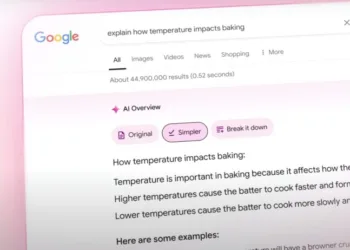Quick Links
Selecting the best AI chatbot for your specific needs can be a daunting task given the multitude available today. Each option tends to shine in certain areas while lacking in others, so I decided to evaluate Meta AI and uncover its most notable strengths.
Having worked with various AI tools like Claude, Perplexity, and ChatGPT, I feel pretty confident about their capabilities and limitations. I focused my efforts on testing Meta AI in several common scenarios and also explored whether it could enhance processes I’ve encountered with other tools.
Armed with effective prompting techniques, I aimed for specificity in my inquiries. So, how did Meta AI stack up against other chatbots?
Interview Preparation
ChatGPT can be useful for interview practice, and I wanted to contemplate how Meta AI held up in this area, especially since one of its original prompt recommendations involved conducting a mock interview. To kick things off, the chatbot asked for some details:
- Type of interview: I selected a job interview.
- Industry/field: I decided to simulate a Content Manager interview at a SaaS company. Though I initially thought about software development, I wanted to assess it in a realm where I have considerable knowledge.
- Experience level: I indicated that I have senior-level experience.
- Focus of the interview: I wanted the interview to be technical and skills-oriented.
For my interview scenario, I chose Apple as the company model.
Meta AI structured the interview into distinct sections, providing me with feedback as we progressed. It posed questions similar to what a hiring manager might ask. The entire process felt transparent, and although I have no desire to work in Silicon Valley, I think Meta AI would still be beneficial for preparing for such interviews.
I wouldn’t solely rely on Meta AI for interview prep, though. Gaining insight into key interview techniques and learning effective strategies would also be advantageous. Additionally, reviewing experiences shared by others in similar roles could provide valuable information.
Generating Social Media Posts
Given that Meta AI is part of the company behind some of the largest social media platforms, it made sense to test its capability in creating social media content. I have previously used ChatGPT for brainstorming social media ideas and enhancing feedback, yet I found it could sometimes produce somewhat bland posts.
I wanted to analyze how Meta AI performed with content tailored for both a Meta-owned platform and a different one.
Creating Social Media Posts on a Meta-Owned Platform
To begin, I prompted Meta AI for an Instagram post:
“I want to create a post for my Instagram photography account. Please generate the text in a friendly tone without being overly extrovert. The post will feature photos from my winter expedition to the Finnish Lapland, including experiences like husky sledding, skiing, and feeding reindeer. I also want to share my top five tips for anyone visiting Northern Finland in winter.”
Here’s what I received:
(Image of the generated Instagram post)
While I appreciated the outcome, I would make minor adjustments like adding some emojis at the start and refining a few of the tips. The result was solid overall. Even though the second suggestion was somewhat blunt, it still marked a positive step forward. Since buying Instagram followers is not a good strategy, I’m interested to see if Meta AI can assist further with post creation to promote organic growth.
Creating Social Media Posts for a Non-Meta-Owned Platform
For my non-Meta platform, I chose LinkedIn. Having enhanced my LinkedIn profile using AI tools, I thought it would be useful to see if Meta AI could generate engaging posts for my audience.
Here was the prompt I submitted for my LinkedIn post:
“I’m preparing a LinkedIn article about common content marketing blunders made by software companies. The post should be succinct and captivating, with an intriguing hook to encourage readers to continue. This will link to an article titled ‘The 30 Biggest Content Marketing Mistakes That SaaS Companies Make, and How to Avoid Them.’”
Initially, the reply was also quite direct, prompting me to request additional context. Ultimately, what I received from Meta AI was superior to the outputs I had gotten from ChatGPT and Claude—more action-focused overall. Although I noticed some repetitiveness (like frequent use of “but”), it offered a solid foundation to build upon.
(Image of the generated LinkedIn post)
Generating Emails
I experimented with Meta AI’s image generation tool but found it somewhat lacking. Unfortunately, it didn’t meet my expectations in generating text within images, a common challenge across AI tools.
Next, I explored whether Meta AI could assist in crafting emails. Since it seemed proficient at generating content earlier, I felt optimistic about this task.
I prompted Meta AI with the following:
“I need you to draft a friendly yet professional email for outreach. This email should inquire if a B2B tech company requires a copywriter for an upcoming whitepaper. I have a background in producing research papers for SaaS firms and have collaborated with prominent companies, which should be highlighted. Additionally, I’d like to suggest three blog post ideas related to the forthcoming research paper titled ‘The Future of AI in Content Management’ and give them the option to request my portfolio and set up a call if needed.”
The initial draft was lengthy, so I asked Meta AI to condense it to around 150 words while enhancing the introductory context. The final resulting email was satisfactory, although I’d still tweak phrases that felt vague, such as “engaging narrative.” I would also rework the first paragraph for a more engaging opener.
(Image of the generated outreach email)
Like other AI chatbots, Meta AI has its strengths and weaknesses. I was surprised at how poorly it performed in image creation, yet it excelled in content generation. You can confidently use Meta AI for composing emails and social media posts, but be prepared to personalize the initial drafts for better impact.










